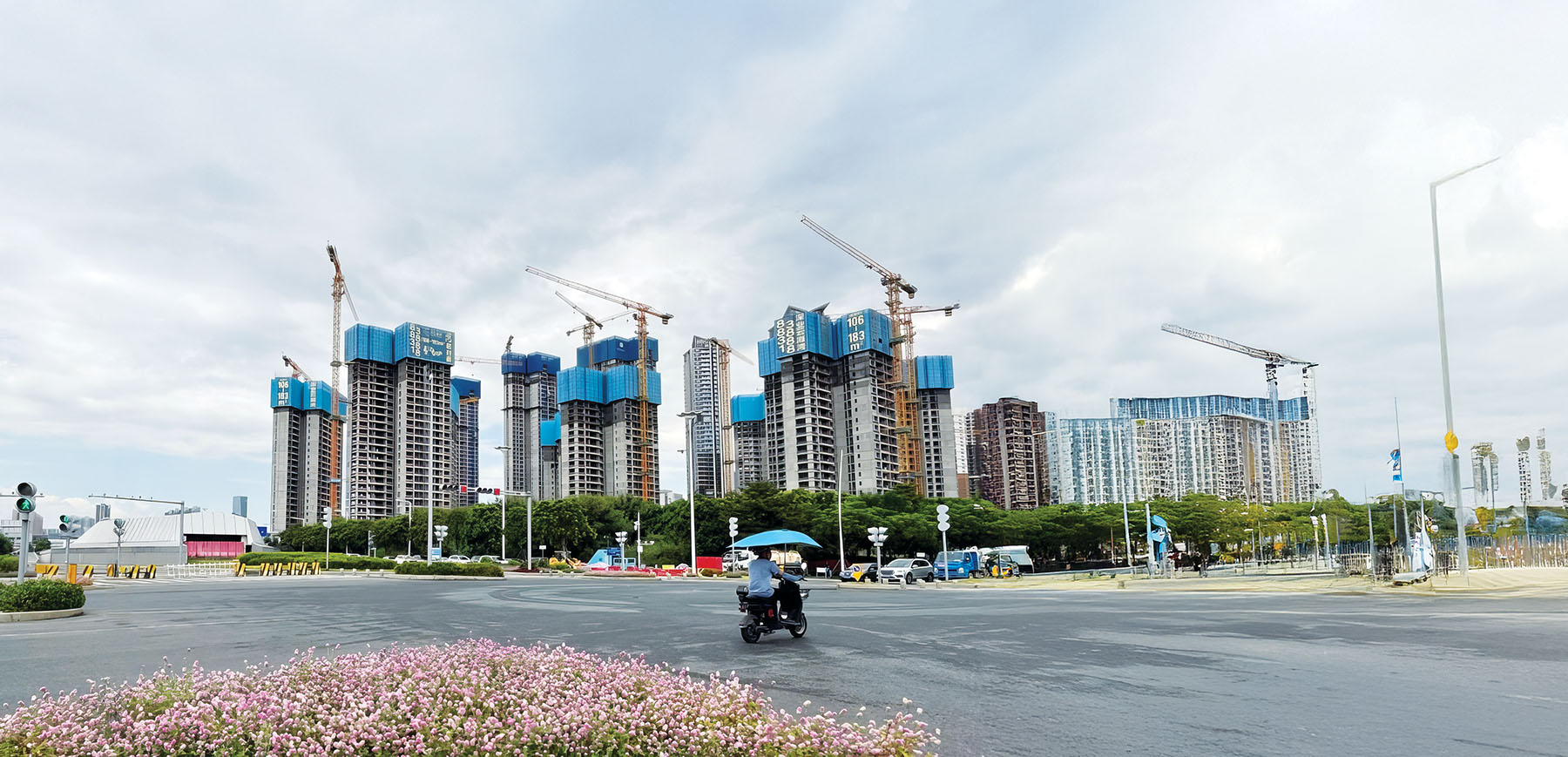
A private housing project in Shenzhen’s Guangming district drew a robust response from buyers last month, with its 192 apartments snapped up within two hours after they went on sale.
But it was a different story when a government-subsidized affordable housing project with 235 flats in Bao’an district, which is nearer downtown, managed to sell just 30 units.
Sentiment in Shenzhen’s residential property market has been building up since the nation’s central bank unveiled a raft of monetary stimuli in September to prop up the beleaguered property and capital markets to promote high-quality economic development. However, buyers’ response to government-subsidized homes, despite their pricing merits, remains lukewarm. Real estate analysts have called for the public affordable housing system to be adjusted to adapt to new trends.
READ MORE: Shenzhen reports strong home sales
Shenzhen’s public property market started cooling off some time ago. A government affordable housing project, Shanyuewan Garden, concluded this year’s fourth round of sales in September, but only 25 of its remaining 3,600 units were sold. The selling rate was a mere 0.6 percent — a record low in sales turnover for affordable housing projects. The tepid response raised eyebrows as the units were priced at 42,600 yuan ($5,980) per sq m, while other properties nearby went for an average of 86,000 yuan per sq m.
Apartments in government-subsidized housing projects had previously been much in demand because of their price advantage. Applicants had to queue up for years, and lotteries would be held to decide the sequence for them to select units in each project. At present, there are still 190,000 households on the waiting list for such projects.
Shenzhen launched more than 20 affordable housing projects, offering a total of about 6,100 units, in the first half of this year, but the overall selection rate was around 23 percent, according to industry media publication, China Real Estate Business.
Yan Yuejin, deputy head of Shanghai-based E-House China R&D Institute, said the affordable housing sector was still performing well last year, but the shift emerged because its cost-effectiveness has weakened. “Prices of commercial new homes and pre-owned properties are coming down, but the prices of affordable houses have barely changed.”
According to real estate services provider Centaline Property, the average transaction price of new homes in Shenzhen dropped by 5.7 percent year-on-year in 2023, with the transaction volume at its lowest level in five years. This year, overall sales fell short of 15 percent. Although the transaction volume surged in October, prices of new homes have remained stagnant.
Amid intense competition, prices of some commercial real estate projects are almost on par with those of nearby government-subsidized homes. For instance, a commercial property, Jade Land, was put on the market earlier this year at prices starting from 46,000 yuan per sq m after discounts. In comparison, the average price of a nearby affordable complex launched last year was 44,900 yuan.
“Moreover, these homes have certain thresholds for application; buyers must have a local hukou (household registration documents), and there may be restrictions on future sales. Previously, with significant price gaps, these restrictive factors were less evident, but the situation has changed now,” Yan said. Currently, buyers of affordable homes can’t achieve full property rights until a decade later, and have to pay a supplementary fee, which is approximately half the price difference compared with the original market price.
Moreover, much affordable housing in Shenzhen reportedly has quality issues, such as with flimsy protruding structures for bay windows, severe water leakages and substandard construction materials.
Potential buyers have become notably cautious. A man surnamed Liu complained that the size of affordable apartments is often small and their layout is barely satisfactory. He purchased an affordable apartment with two bedrooms last year, but said he is regretting it, wondering whether the compromises he made were worth it.
ALSO READ: Guangzhou lifts restrictions on home buying
Yan pointed out that the quality of affordable housing needs to be improved to regain favor in the market.
Ni Hong, minister of Housing and Urban-Rural Development, said local governments would get support in purchasing commercial housing in stock and use them as affordable housing in order to effectively reduce existing stock and optimize new offerings.
Yan suggested that local governments publish research reports on affordable housing each year to inform the public about the overall stock, price trends, policy changes, quality evaluation and other relevant information.
Li Yujia, chief researcher at the Guangdong Planning Institute’s residential policy research center, proposed creating an evaluation mechanism on a monthly or even higher frequency basis to assess the latest prices of affordable homes near new commercial projects.
He said this would help to adjust sale prices and maintain a stable price difference.


